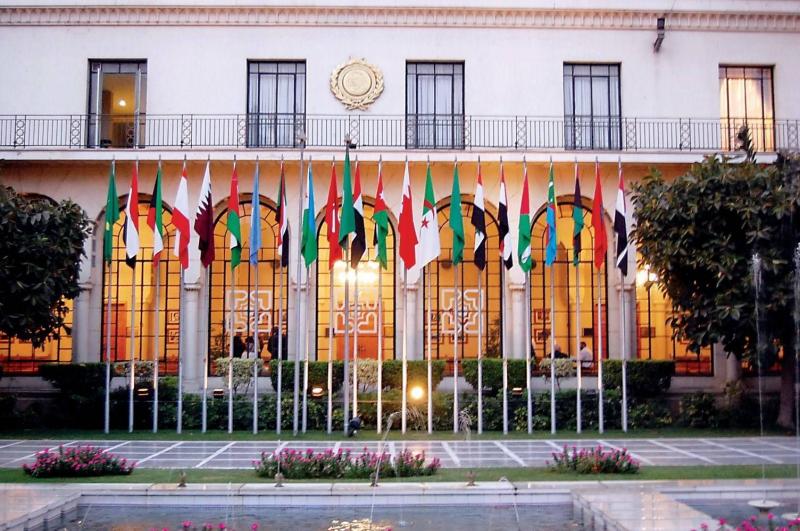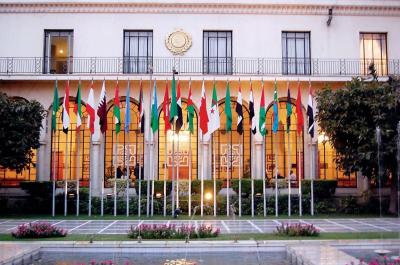Since its establishment in 1945, the Arab League has been headed by eight secretaries-general over 87 years, starting from "the Che Guevara of the Arabs," Abdel Rahman Azzam, to the current secretary-general, Ahmed Aboul Gheit. They are as follows:
- **Abdel Rahman Azzam (1945 - 1952):** Azzam is known as "the Che Guevara of the Arabs" because he participated in several wars, fighting against the Serbs in the Ottoman ranks and against the British alongside Ahmad Sharif Al-Sanussi. He established the Murabit army during World War II and contributed to the formation of the first republic in the Arab world, the Tripolitanian Republic. Holding British citizenship, Azzam was one of the first advocates for the idea of establishing an Arab Union, which ultimately led to the creation of the Arab League. He began his political career in London and headed the Egyptian Abu Al-Hawl Society (founded by Egyptian students). During WWI, he traveled to Turkey, worked as a newspaper correspondent, and participated in the Balkan War with Ottoman forces. He returned to Egypt in 1915 and participated in the Libyan national movement against Italian occupation, serving as the first advisor to the first Libyan republic. He continued to fight against the Italian and British occupation in Egypt until 1922. After returning to Egypt, he was elected to the first Egyptian Parliament in 1924, becoming its youngest member and serving as its secretary. Re-elected until 1936, he was appointed Minister Plenipotentiary and extraordinary representative of the Kingdom of Egypt, covering several Arab and Islamic countries. In 1945, he was a member of the Egyptian delegation to draft the Arab League Charter. On March 22, 1945, when the Charter was signed by seven Arab states, he was unanimously chosen as the first secretary-general until 1952. He advocated for Indonesia's freedom and independence, bringing the issue before the Arab League, which was the first international organization to recognize its independence. After the Arab League, he worked as an advisor to Saudi Arabia and represented it in the dispute concerning the Bormei oases.
- **Mohamed Abdel Khalek Hassouna (1952 - 1972):** Worked as a secretary at the Egyptian Embassy in Brussels from 1928 to 1930, then as first secretary at the Egyptian Embassy in Romania from 1930 to 1932. He became the director of the Foreign Minister's office from 1932 to 1934 and was the first undersecretary of the Ministry of Social Affairs upon its establishment from 1940 to 1942. He served as the secretary-general of the Arab League from September 1952 to May 1972.
- **Mahmoud Riyad (1972 - 1979):** After graduating from the Egyptian War College in 1943, Riyad returned to teach at the military college. He became director of military intelligence in Gaza in August 1948. He was part of the Egyptian delegation in the Rhodes negotiations in February 1949, leading to the signing of the armistice agreement between Egypt and Israel. He headed the Egyptian delegation in the Egyptian-Israeli Joint Armistice Commission from 1949 to 1952. After the revolution, he became the director of the Palestine Department, overseeing all aspects of the Palestinian cause in the general command of the armed forces. He served as the director of the Arab Administration at the Foreign Ministry in 1954, Egypt's ambassador to Damascus in 1955, and was involved in the signing of the unity with Syria in 1958. He was an advisor to President Gamal Abdel Nasser on political affairs from 1958 to 1962 and Egypt's permanent representative to the UN in 1962. He was appointed Minister of Foreign Affairs from 1964 to 1972 and was an advisor to President Anwar Sadat in 1972. He was elected secretary-general of the Arab League in June 1972 and resigned in March 1979.
- **Chadhli Klibi (1979 - 1990):** Educated at the Sadiki School in Tunisia, he continued his studies at the Sorbonne in Paris, earning a degree in Arabic language and literature in 1947. He won the "Tebriz" debate in 1950 and began teaching at secondary schools. In 1958, he was appointed director general of national radio and television. By 1961, he was tasked with establishing the Ministry of Cultural Affairs and remained in charge until 1970, taking on media responsibilities during parts of this period. He held the Ministry of Culture from 1971 to 1973 and from 1976 to 1978. He also served as director of the President's office from 1974 to 1976 and became the Minister of Information from September 1978 until June 28, 1979, when he was elected secretary-general of the Arab League. He was a member of the party's central committee in Tunisia since 1964 and participated in numerous national publications.
- **Ahmed Ismat Abdel Majid (1991 - 2001):** Served as the secretary-general of the Arab League from 1991 to 2001. He was Deputy Prime Minister and Minister of Foreign Affairs of Egypt in 1985. He held the position of Foreign Minister in 1984 and served as Egypt's ambassador and permanent representative to the UN in New York from 1983 to 1972, among various high-ranking positions, including Egyptian ambassador to France in 1970.
- **Amr Moussa (2001 - 2011):** He obtained a law degree from Cairo University in 1957 and joined the Egyptian Foreign Ministry. From 1958 to 1972, he served in several embassies, including Egypt's embassy in Switzerland. Moussa was appointed Minister of Foreign Affairs in 1991 and then served as secretary-general of the Arab League from 2001.
- **Nabil El-Araby (2011 - 2016):** Born in 1935, El-Araby served as secretary-general of the Arab League from May 15, 2011, to June 30, 2016. He was Egypt's Minister of Foreign Affairs from March 7, 2011, to May 15, 2011. He obtained a law degree from Cairo University in 1955 and earned a master's degree in international law and a doctorate in judicial sciences from New York University. El-Araby headed Egypt's delegation to negotiate the resolution of the Taba dispute with Israel from 1985 to 1989 and worked as a legal advisor during the Camp David peace conference in 1978. Among his various roles, he was an ambassador to India (1981 - 1983) and a judge at the International Court of Justice from 2001 to 2006.
- **Ahmed Aboul Gheit (1942 - present):** Born June 12, 1942, in Cairo, Aboul Gheit is an Egyptian diplomat and politician. On March 10, 2016, he was chosen as secretary-general of the Arab League, succeeding Nabil El-Araby. He previously served as Egypt's Minister of Foreign Affairs from 2004 to 2011, during which he remained in position briefly after the January 25 Revolution following President Hosni Mubarak's resignation. He earned a Bachelor of Commerce from Ain Shams University in 1964 and joined the Ministry of Foreign Affairs in 1965, progressing through various diplomatic roles and serving as ambassador to Italy and Macedonia among other positions. In 2004, he succeeded Ahmed Maher as Minister of Foreign Affairs.




